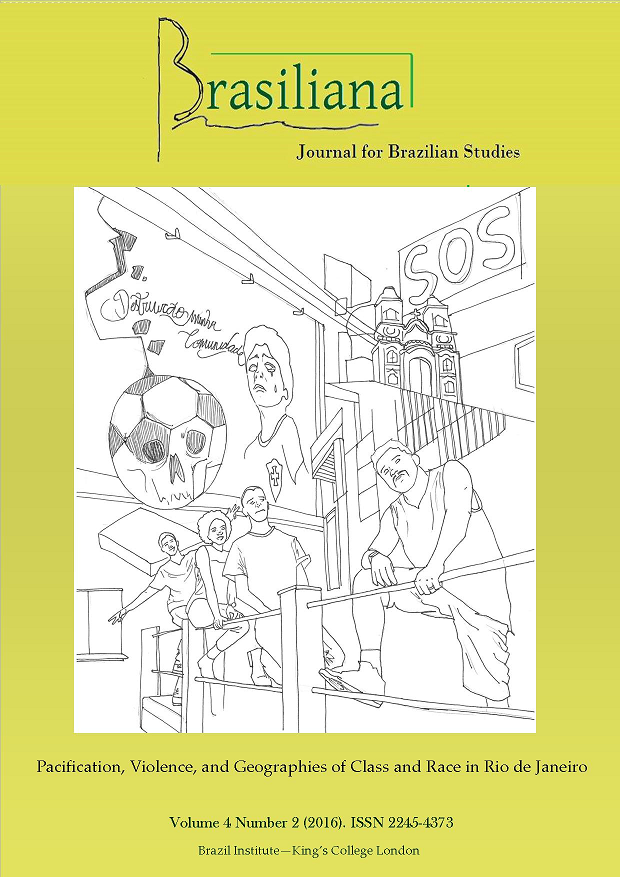“Esculacho” and other spoken meanings of pacification in Rio de Janeiro
Main Article Content
Abstract
Article Details
![]()
Articles published in Brasiliana are licensed under a Creative Commons Attribution-NonCommercial-NoDerivs 3.0 Unported License.
When publishing open access, the author signs an author publishing agreement in which they retain copyright and give Brasiliana the right to publish the article. Our Open Access publications are distributed under the terms of the Creative Commons Attribution 4.0 International License, which permits unrestricted use, distribution, and reproduction in any medium, provided the original work is properly cited.
References
Clifford, J. The Predicament of Culture. Cambridge e London: Harvard University Press, 1988.
Das, Veena. “The Signature of the State: The paradox of legibility”. In: das, V. and poole, D. Anthropology in the Margins of the State. New Mexico: School of American Research Press, 2004.
Sampson, Robert J.; Morenoff, Jeffrey D. and Gannon-Rowley, Thomas. “Assessing neighborhood effects: Social Processes and New Directions in Research”. In: Annual Reviews Sociology, 28: 443–78, 2002.
Stewart, Ch. & shaw, R. Syncretism and Anti-Syncretism. London and New York: Routledge, 1994.
Taussig, Michael T. Shamanism, colonialism, and the wild man: a study in terror and healing. Chicago, London: University of Chicago Press. 1987.
Turner, Jonathan H. On the Origins of Human Emotion. Stanford: Stanford University Press. 2000.
Zaluar, Alba & monteiro, Mario Francisco G. “Desigualdades regionais do risco de mortalidade de jovens: Raça, renda e/ou escolaridade da mãe?” In: Dilemas: Revista de Estudos de Conflito e Controle Social , -5-3 pg 369-386, 2012.
______ & Ribeiro, Ana Paula A.G. 2009. “Teoria da eficácia coletiva e violência: o paradoxo do subúrbio carioca”. Novos Estudos CEBRAP, 84: 175-199. Available at: http://dx.doi.org/10.1590/S0101-330020090002000102009
______. Integração Perversa, Rio de Janeiro: Editora FGV, 2004.
______. “Democratização Inacabada: fracasso da segurança pública”, em Estudos Avançados 21 (61), 2007.
